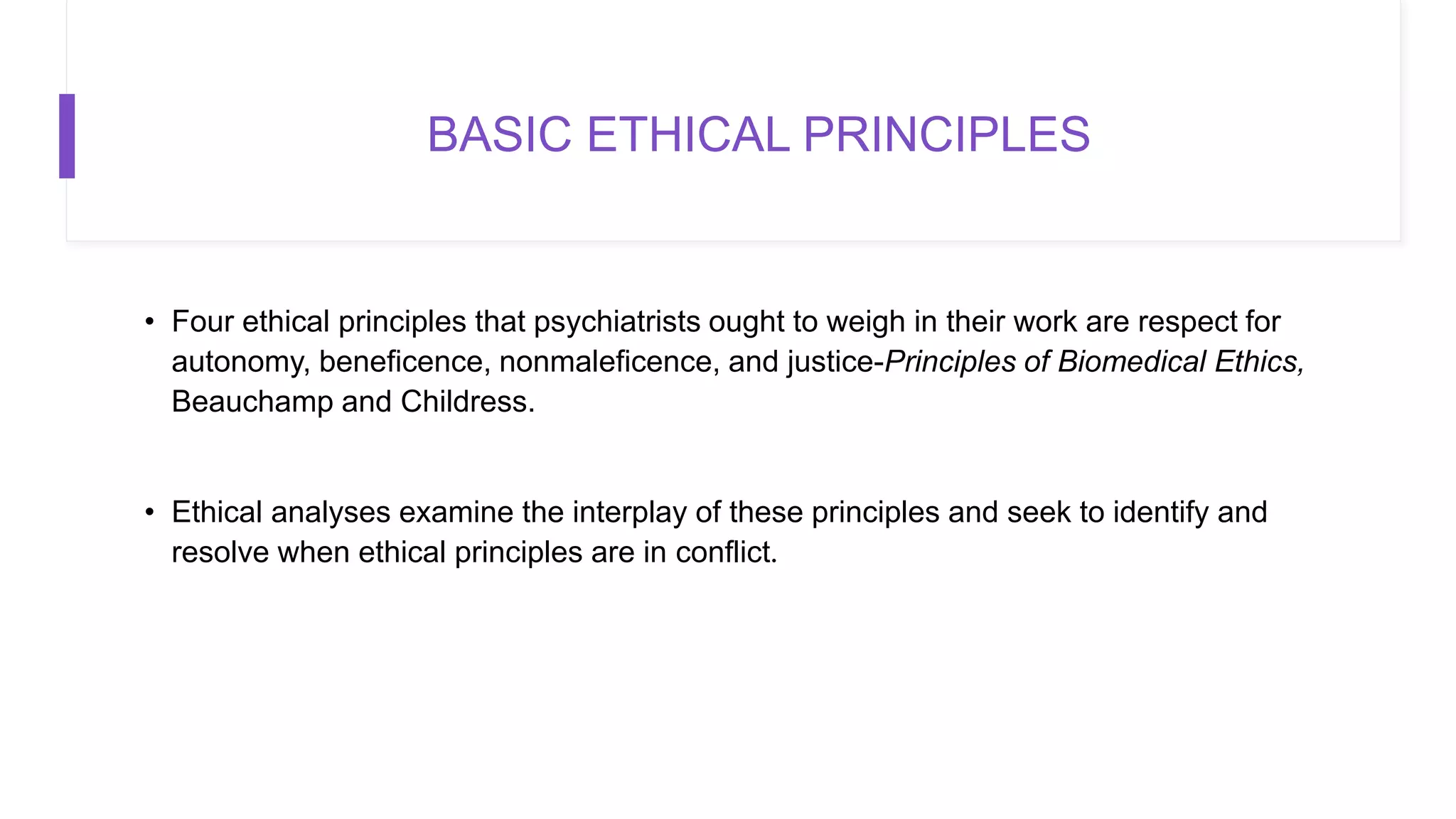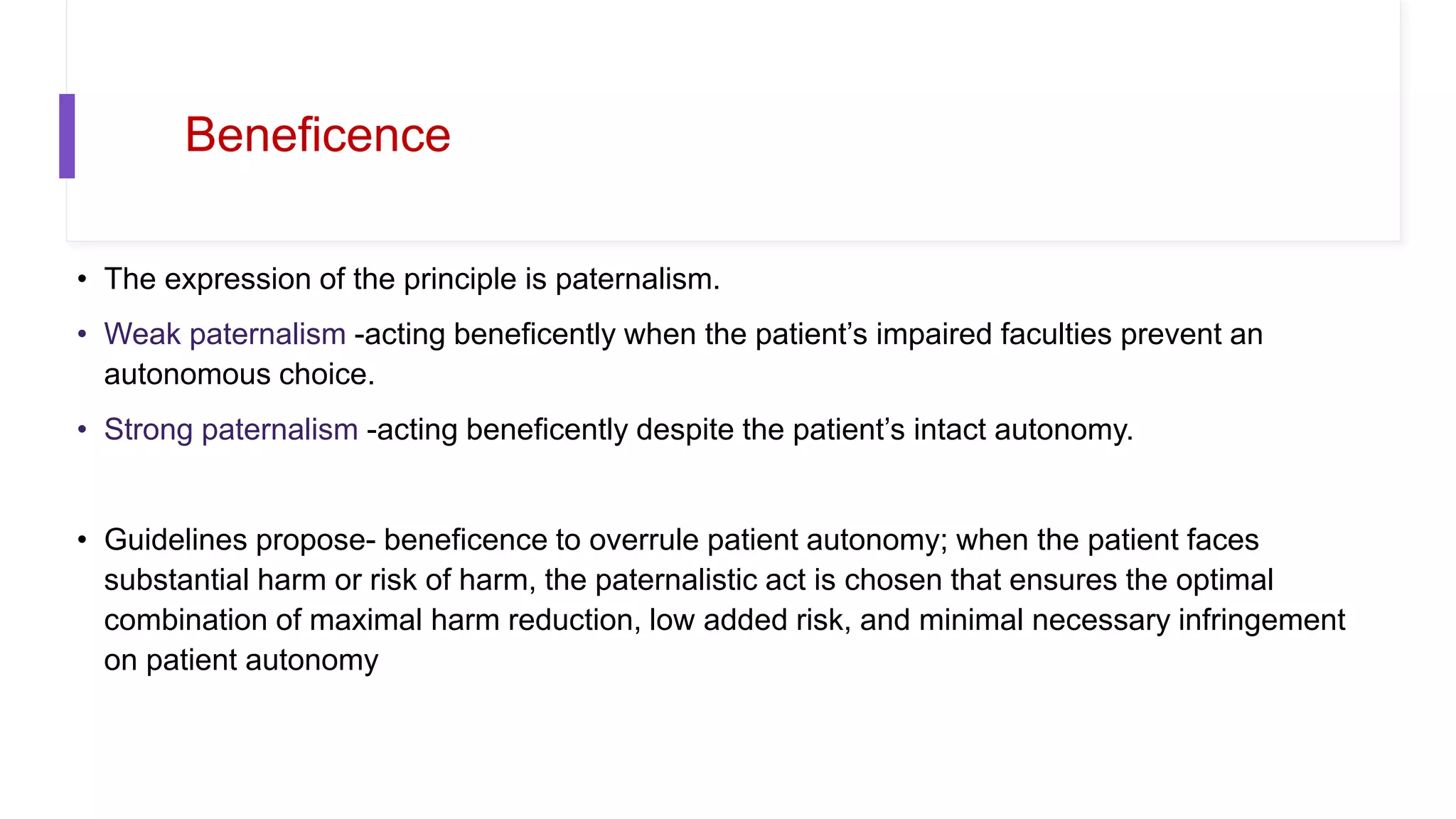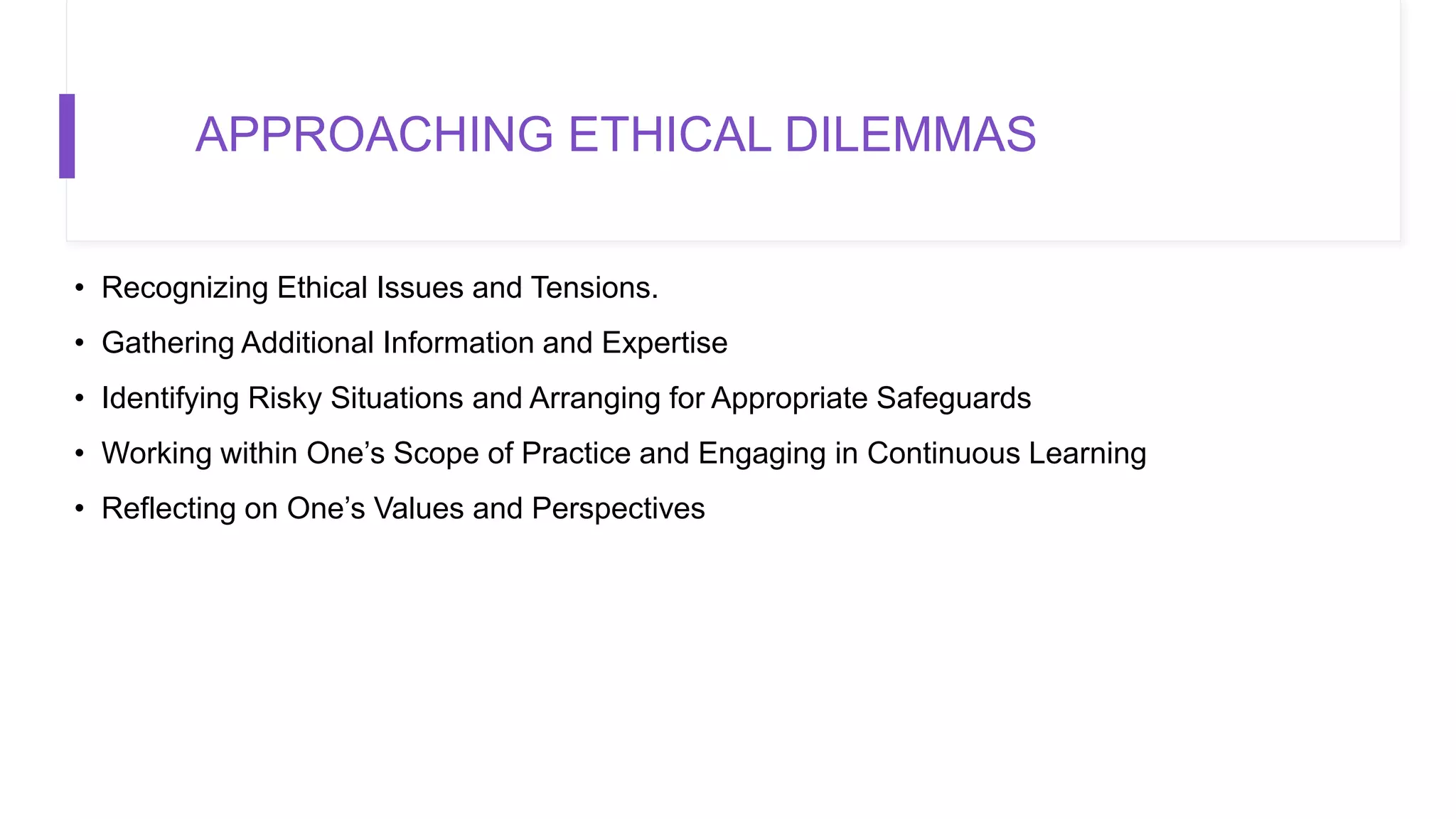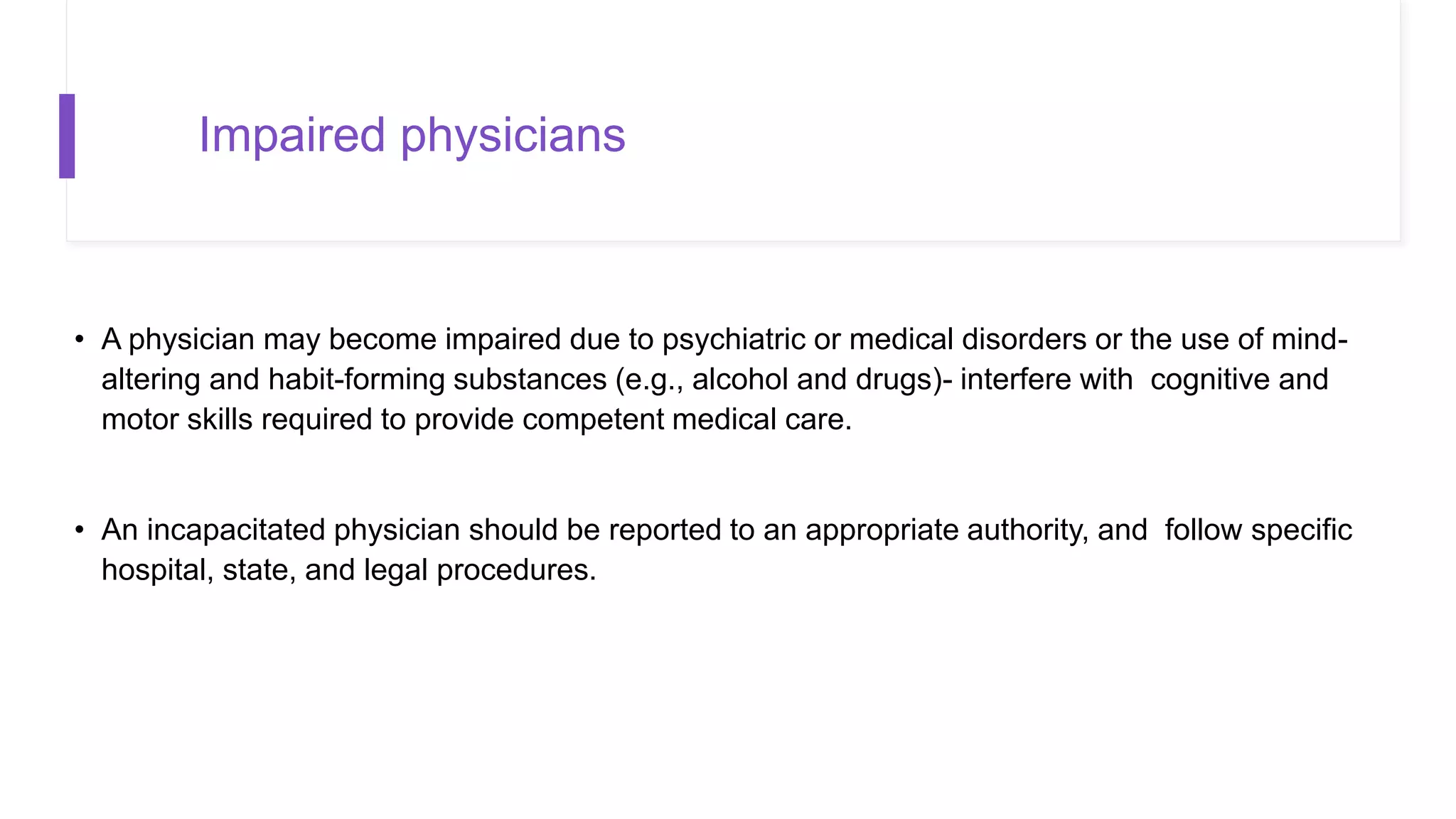This document discusses ethics in psychiatry, covering topics such as basic ethical principles like respect for autonomy, beneficence, nonmaleficence, and justice. It also discusses specific issues like sexual boundary violations, informed consent, voluntary vs involuntary treatment, and confidentiality. The objectives of professional ethics are to provide guidelines for conduct among professionals and in dealing with patients. Approaching ethical dilemmas requires recognizing issues, gathering expertise, and identifying risks. The Indian Psychiatric Society code of ethics from 1989 outlines principles like maintaining competence and prioritizing patient welfare.




































